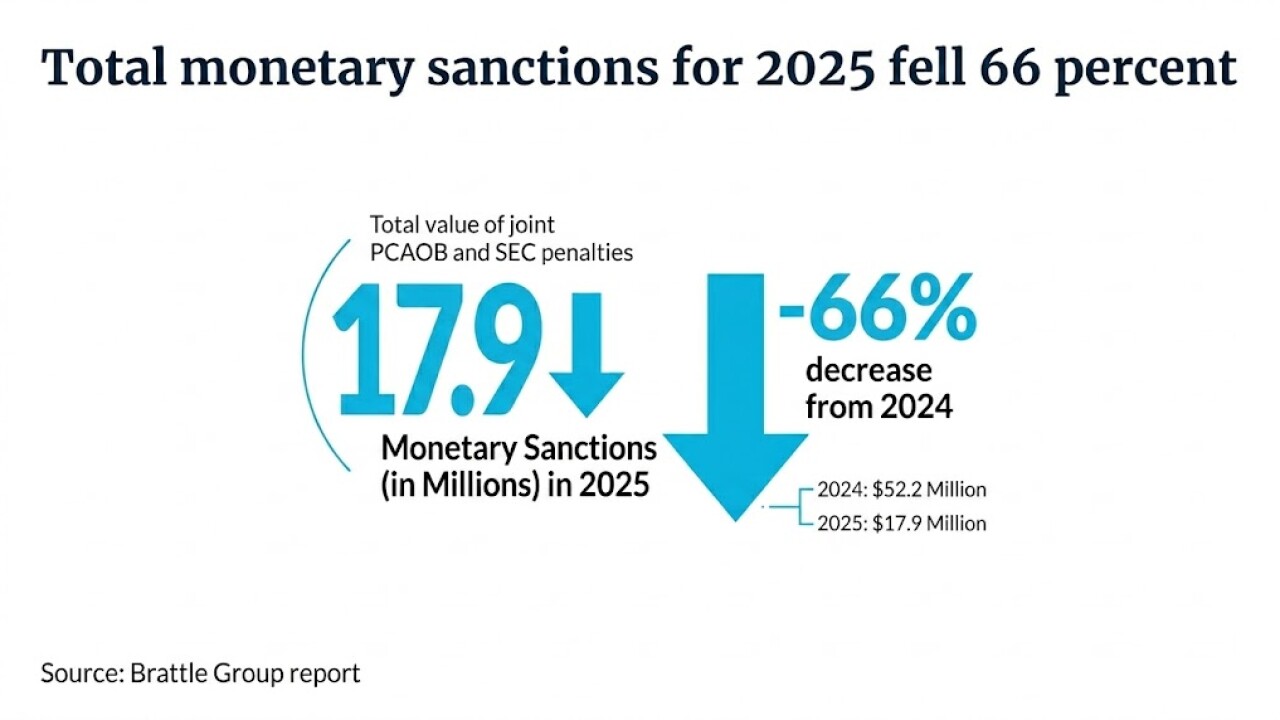With just one day to go before Tax Day, some affluent Americans are paying Uncle Sam by using an established wealth-building strategy: borrowing from their bank.
Wealth management clients with hefty stock and bond portfolios have long used their holdings as collateral for loans to bankroll their dreams, from buying a beach vacation house to acquiring a 1963 Ferrari GTO, "
But what's known as the "
Borrowing money to pay taxes is "uncommon, but it's a really good strategy," said Kenneth van Leeuwen, the managing director of Van Leeuwen & Co., a wealth management firm in Princeton, New Jersey.
Big banks and brokerages do a brisk trade in selling what's known as securities-based loans to their wealthiest clients. With interest rates lower than those on a personal loan or a home equity-based line of credit, the loans allow borrowers to leverage their securities as collateral for cash, all without selling their investments.
The idea is that borrowing is worth it if you think the return on your collateralized investments will outpace the interest rate you pay. Investors can typically borrow at least 50% of the value of their portfolios.
In a Feb. 23 note, Morgan Stanley wrote that "The application process for these loans tends to be quick" — several days — "and requires relatively little paperwork, which can be a benefit if your
By contrast,
Securities-based loans are more commonly used to pay for a fancy wedding or expensive college tuition, but wealth advisors say they're underutilized as a way for a client to meet an unexpected or one-time tax expense. One such situation concerns stock grants known as restricted stock units.
That equity is typically granted to mid-level and senior executives by their employers as part of overall compensation. It becomes taxable when it vests, meaning becomes available to the employee after hurdles tied to performance goals or tenure at the company are met. The vesting date triggers a tax bill, even if the executive doesn't sell the shares.
The shares are akin to income like a salary, so they're taxed at ordinary rates, now a top 37%. Take someone in that highest bracket, with 50,000 RSUs in their company that were worth $20 each when granted. Two years later when they vest, they're worth $30 a pop. That means a federal tax bill of $18,500 on the $50,000 appreciation.
Paying taxes in style
A securities-based loan, also known as a securities-based line of credit, or SBLOC, has much in common with its better-known cousin, a margin loan. Both involve an investor borrowing money by using their securities as collateral, and both have variable interest rates.
But unlike a margin loan, a securities-based loan
The loans are typically available only to high net worth and ultrahigh net worth clients. In contrast,
"We tend to recommend folks to actually go and establish an SBLOC at the point of account opening so that they don't have to go and scramble to get that line of credit in case of an emergency," said Andy Watts, the vice president of planning and wealth solutions at Avantax Wealth Management, a tax-focused wealth management firm in Dallas. "It's a perfect way to defer any sort of taxable event if you're needing to pay taxes."
Van Leeuwen cited one client, an executive at T.J. Maxx, who last year used his $200,000 stock and bond portfolio to take out a margin loan from Goldman Sachs at around 6% interest to pay a $10,000 tax bill owed on T.J. Maxx restricted stock units that had vested. The client wasn't considered large enough for a securities-based loan at a slightly lower rate, van Leeuwen said.
Of course, many wealth advisors prefer clients to pay a tax bill using savings.
"If you have cash, use cash to pay the bill," van Leeuwen said.
But when large buckets of restricted stock units vest, that's not always an option.
"If you can borrow at a lower rate, it's worth it to pay 6% if you think the stock is going to go up," Van Leeuwen said.
Growth opportunity for independent advisors
While every major bank, wirehouse and brokerage offers securities-based loans, independent advisors have been slow to embrace the trend.
Broadridge, a financial technology company in Lake Success, New York, said in a 2023 report that approximately
The loans, Broadridge wrote, are "an effective tool in helping the advisor expand their client conversations. There is no new news here — but access to credit is absolutely table stakes for those firms that offer it, and those that don't face a real threat to their ability to effectively grow their wealth offering."
Neither the Financial Industry Regulatory Authority, which oversees brokers, nor the Securities and Exchange Commission, Wall Street's regulator, tracks volumes of securities-based loans. A 2017 op-ed by Zohar Swaine, the founder and president of Mink Hollow Advisors, a strategy consulting firm in New York for the wealth management industry,
More risk
When the Federal Reserve began hiking interest rates in March 2021, rates on both margin and securities-based loans
In other words, last year's terrible stock and bond markets have made it riskier for investors to pledge the value of their securities against a borrowed money. But that hasn't stopped Wall Street's fast-cash machine.
Bank of America, for example, reported U.S. securities-based lending loans of
"Many investors are holding stock they now see as undervalued; that's why it's such a good strategy," van Leeuwen said, adding that investors don't want to sell shares they think will rise.
But he noted that the technique "is difficult" for investors, because a bank can demand immediate repayment if markets tumble and depress the value of the securities collateralizing the loan. "There's an element of risk there."








